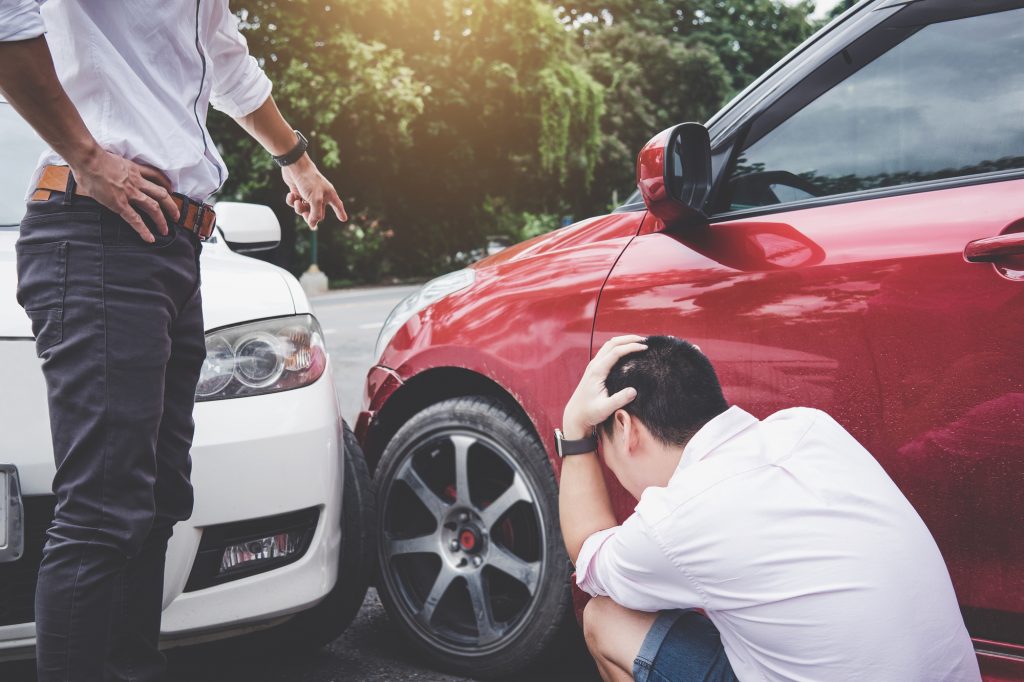
Driving a car can be dangerous, as there are always inconsiderate drivers on the road. It can be hazardous for passengers as well.
You can never control what other drivers do. You can govern your own actions, and you can follow every traffic law to stay as safe as possible.
However, on some occasions, try as you might, you may get in a car accident. If you do, there are a few injuries that are particularly common.
Let’s go over them, as well as some ways you can determine that you’ve suffered one.
Whiplash
Whiplash is what happens when the head and neck jerk violently forward and backward. It often occurs when:
- A car hits you from behind
- You’re bracing for impact
There are more severe whiplash cases and others that are not as bad. When a vehicle rear-ends you, you have a good chance of this happening to you.
If you decide to bring a whiplash lawsuit against the other driver, make sure you do so while you still legally can. Every state has different limitation statutes. In Florida, for instance, you usually must file suit within four years of when you suffered the injury.
Concussions
Concussions also happen frequently if you are in a car crash. A concussion might occur when:
- Your brain bounces against your skull’s inside
- A car violently collides with the one in which you are riding
If you’re in a car wreck, there’s no guarantee you’ll sustain a concussion, but this is another one of the more common injuries you might suffer.
There are possible concussion symptoms. You might feel confused or nauseous. You may vomit.
You might have headaches in the hours or days afterward. You may have tinnitus, a kind of persistent, painful ear ringing.
A concussion is a traumatic brain injury variety, and any time you injure your brain, that’s bad news. Some concussions are milder than others, though. You may recover in days, or sometimes weeks. While you do so, you might take time off from work or school.
Broken Bones
A simple fender bender will probably not cause any broken bones. If you’re in a more violent wreck or a multiple-car pile-up, this sort of thing is more likely.
A doctor might call a broken bone a fracture. You might have a clean break or a compound fracture, which is where the bone pierces the skin.
Usually, if you break a bone, you will know it, even if it is not a compound fracture. The pain is quite severe, and you will feel it as soon as the adrenaline wears off. You may be in shock directly after the accident, so you might not feel it in the first seconds or minutes.
If you do break a bone, you could miss some work or school. You may need to have surgery to reset it. You might have to wear a cast.
A broken bone recovery process can take weeks or months in some cases.
Internal Bleeding
Hard impact can cause internal bleeding. You might have your seatbelt on, but the accident’s impact jolted you around.
If you’re bleeding internally, you might not know it immediately. That’s why it’s so critical to get medical personnel to check you out thoroughly after an accident.
You might have a damaged internal organ. It could be something like the liver, spleen, or pancreas. What the doctors will do about it may depend on how severe it is. They might have to operate to repair the damage.
If so, it can threaten your life if the injury is serious enough. If you survive, the recovery may take a long time.
Cuts and Bruises
You also might sustain bruises and cuts. Depending on how the crash played out, they might be just about anywhere on your body.
If you have a severe laceration, you might need stitches to close it up. If it’s bad enough, the doctors may render you unconscious so they can operate. They might also just give you a local anesthetic and stitch you up.
If you have some severe bruising, the healing process can be painful. At least you can show your friends, and you’ll have an exciting story to tell everyone you know.
If you act responsibly every time you drive, you may get through your whole life without ever being in a car accident. If you do have the misfortune to be in one, ideally, you will not sustain any of these serious injuries.
